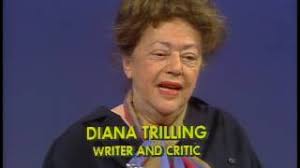45. Gaylord Perry
“During the next eight years or so, I reckon I tried everything on the old apple but salt and pepper and chocolate sauce toppin’.” -Gaylord Perry (with Bob Sudyk)
Me and the Spitter is a
slippery little memoir—not quite as slippery as the pitch of the title, but dripping
with grease and sputum nonetheless. The spitball, which was officially
banned after the 1920 Major League Baseball season but which has persisted in some
form in the decades since, involves the pitcher wetting up the ball with saliva
or some other substance such as Vaseline, tobacco juice, or even vaginal
lubricant. The result is a pitch that has very little spin and dies at the
plate, dropping suddenly and causing the unsuspecting batter to swing over it. Depending
on who you ask, it either was or wasn’t the bread-and-butter of hall-of-fame
hurler Gaylord Perry’s repertoire for most of his career.
If you ask Perry himself, though,
you probably won’t get a straight answer. For all the suspicion leveled against
him over the years and all the constant spot checks from umpires, he was never
officially caught doctoring the ball until his next-to-last season in 1982, and
in his 1974 memoir he isn’t saying whether he did anything untoward or not. Or
rather, he repeatedly suggests that he did, only to keep walking it back under
the cover of plausible deniability. “There is no way umpires or batters can
prove I haven’t been fictionalizing my spitter and greaser in this book,” he
writes. “They have never found a thing on the ball. And they never will.” This
sort of cheek—daring us to take him at his word, only to withdraw that word
with a wink—is a bold, even reckless gambit, especially considering the book
was published smack in the middle of his career. It’s a sort of If I Did It
ahead of the fact, albeit with considerably lower stakes.
Perry grew up on a tobacco farm in
rural North Carolina, in a community where folks would gather at the general
store to tell tall tales, and it’s this down home, truth-stretching vibe that pervades
the memoir. Perry and co-writer Sudyk work in their share of country dialect
(c.f. above, “the old apple," "toppin’”) and adopt a tone that is playfully
ironic throughout. This irony is present in the first of the book’s two
narrative threads—Perry's life as a classic rags-to-riches tale—which leans heavy into the
world of Southern sharecropping and vividly evokes a community, but it really comes into its
own in the second. In that narrative, we see the trickster hard at work on the mound,
adjusting his technique in the face of constant scrutiny and rule changes, and
deflecting any criticisms with an appealing smirk. When Hank Aaron complains to
the umpire that Perry’s throwing a spitter, Perry takes offense. “I was hurt,”
he tells us, “that pitch was as dry as a Baptist wedding.” (And, in this case,
at least according to Perry, it was. Part of his trickery is to regularly
pretend to load up the ball only to then throw a “straight” pitch.)
Perry’s playful tale telling may
come straight out of Noah Roberson’s grocery store in Williamstown, North
Carolina, but this winking coyness is also born of necessity. In the ‘60s, when Perry began his career, the spitter occupied something of a middle ground in terms of legality.
Technically verboten, it was largely tolerated, even admired. (“Ballplayers don’t
think a good spitballer is a criminal,” Perry writes. “They think he’s an
artist.”) But, at the time Perry was writing, the league had begun cracking
down on spitters, tightening the rules in 1968 and again in 1974, and Perry
found himself constantly under attack from various umpires and opposing managers
who had it out for him.
In Perry’s telling, though, to
complain about the spitter is to be a bit of a churl. Baseball’s always
been full of its share of trickery—from slicking up the ball to stealing the
opposing team’s signs—that may or may not be strictly legal, but is part of the
culture of the game. Naturally, you’re going to complain when it’s used against
you and keep your mouth shut when it’s your side that’s doing it, but to whine
too much is a bad look. It’s like admitting you’re the only person in the room
who isn’t in on the joke. Nowadays, every one wants to be very self-righteous
about the integrity of the game, but no one really likes those Hall of Fame
voters who refused to elect Barry Bonds or those pundits who are still hung up
on the 2017 Houston Astros. Baseball looks the other way until it doesn’t and then
all the fun is over. In the end, even Gaylord Perry got caught.
But Perry’s jocular tone obscures a
hard fact: slobbering up a pitch can build a career. Perry’s book begins with
the night in 1964 that made his own. Pitching deep into the night during the
second game of a doubleheader, Perry finally breaks out the spitter, retires multiple
innings’ worth of batters, and, soon after, goes on to secure a spot in the
Giant’s rotation. Until that moment, his career was in jeopardy, he was in
danger of being sent back to the farm, but now he knows he belongs. And, according
to him, anyone would have done the same. “The reason a lot of pitchers don’t
throw the greaser has nothing to do with ethics,” he writes. “They just can’t
master it. For those who can, it means victories, big money, and a longer career.”
In a sport where very few people in the world can make it, any advantage is fair
game. And of course, it’s only cheating when you get caught.



Comments
Post a Comment